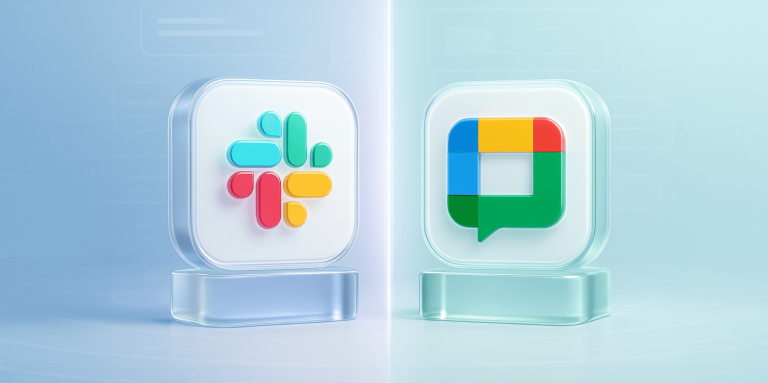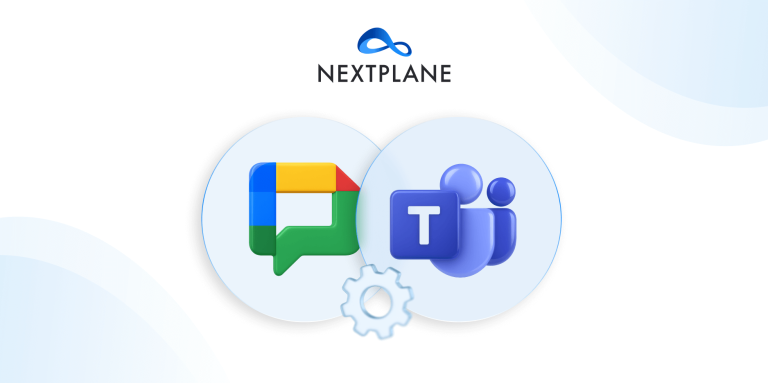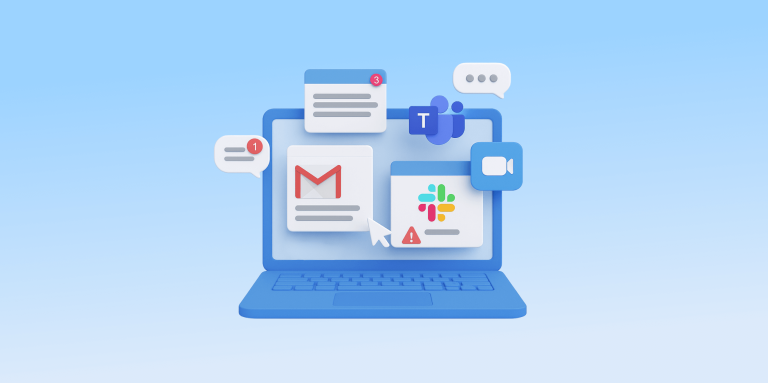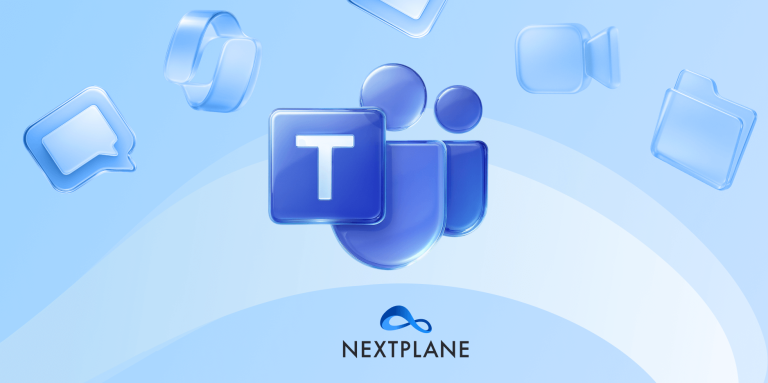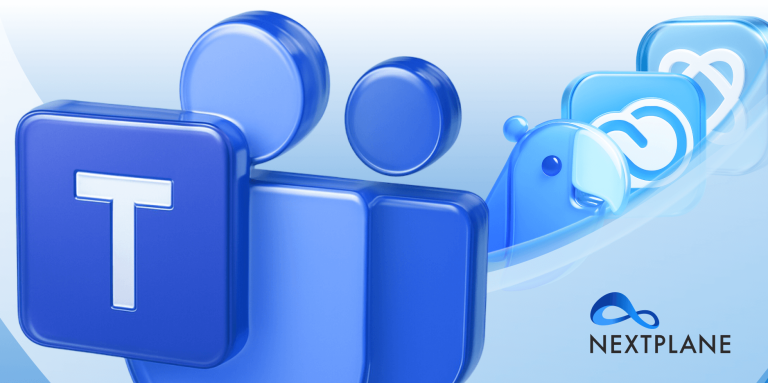The Cross-Platform Revolution: Why Google Chose NextPlane OpenHub to Connect Google Workspace & Microsoft Teams
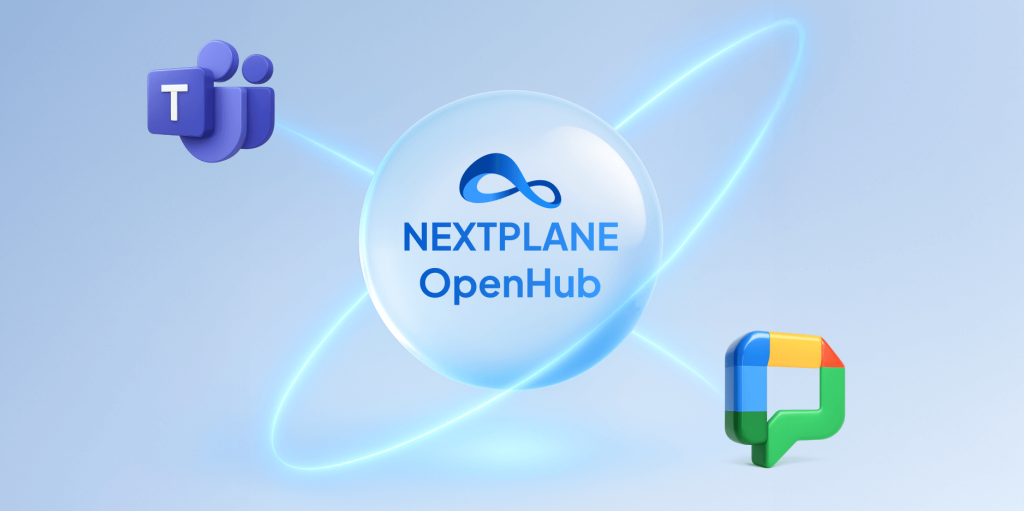
Table of contents
On Aug. 1, Google announced its decision to choose NextPlane OpenHub to enable interoperability between Google Chat and Microsoft Teams. In a post highlighting the partnership, the tech juggernaut explained how OpenHub enables users on both Chat and Teams to communicate with colleagues using the platform they prefer.
In response to this announcement, Rich Tehrani, CEO of TMC and chairman of ITEXPO, took a deeper dive into OpenHub and examined how it can help enterprises improve collaboration in a recent article called Google Chat Interop Built on NextPlane’s OpenHub Brings Seamless Messaging Across Platforms.
“As more organizations adopt hybrid or multi-vendor collaboration stacks, the demand for smooth, cross-platform communication continues to rise,” Tehrani writes. “With employees, partners, and clients often spread across competing chat ecosystems, bridging these tools is becoming a business imperative.”
What does OpenHub do?
Tehrani describes NextPlane OpenHub as a “cloud-native, standards-compliant interoperability layer” that allows users on different messaging platforms to communicate as if they’re on the same tool.
For example, a Google Chat user can message a colleague on Teams, receive replies in the same thread, share files, react, and even send stickers and emojis – all without having to toggle between apps and incur the associated context switching – induced productivity drains.
This seamless collaboration is delivered via OpenHub’s proxy guest architecture, which assigns virtual identities to users across platforms, Tehrani writes. As a result, users on other platforms appear native within the tool an employee uses; for example, a Teams user chatting with someone on Google Workspace appears as a guest in Google Chat, with no extra license or client required.
The end result? Native user experiences and seamless collaboration across platforms without compromising on security or cost of ownership.
OpenHub: Key benefits
The way Tehrani sees it, OpenHub — which also supports Slack, Zoom, and Cisco Webex — delivers three key benefits to organizations.
1. Simplified administration
According to Tehrani, OpenHub is built to make life easier for admins; when logged into Google Workspace, admins can control interoperability directly from the Workspace console, without having to log into another management portal. Settings can also be applied by group or domain, enabling organizations to enable cross-platform collaboration only where it’s needed — like for sales teams or specific departments working with external partners.
Unlike other interoperability tools, OpenHub doesn’t require its own dashboard. As Tehrani points out, it operates as an embedded layer that honors existing identities, permissions, and audit policies within both Workspace and Teams. As a result, organizations using OpenHub reduce shadow IT risks while ensuring compliance across environments.
2. Security and compliance
OpenHub is designed with enterprise-grade security at its core. As Tehrani explains, the platform doesn’t store messages, files, or chat histories. Instead, it simply acts as a secure relay that passes messages back and forth via APIs while keeping organizational boundaries intact.
With OpenHub, file sharing is governed by each platform’s native permissions. “For example, a file sent from Google Chat to a Teams user uses Google Drive permissions to control access, so enterprises retain visibility and enforcement over their data,” Tehrani writes. “In addition, OpenHub supports data residency configurations, including options for U.S., E.U., and Asia-Pacific deployments.”
He goes on to note that private or dedicated instances are available for organizations that operate in highly regulated industries.
3. Cost efficiency
In today’s inflationary environment, Tehrani says one of the “most attractive aspects” of OpenHub is its licensing model. By using proxy identities instead of dual logins, employees don’t need licenses for multiple platforms. In other words, a Google Workspace user can message a Teams user — or a Slack user, for that matter — without requiring additional licensing cost.
This approach is more cost-effective — particularly for organizations seeking to navigate mergers and acquisitions, coordinate field teams, or bridge the gap between departments or third-party vendors.
Rather than forcing everyone onto a single platform — and almost certainly frustrating at least some team members in the process — organizations can let teams use whichever platforms they prefer while ensuring seamless collaboration across operations.
Getting ready for cross-platform collaboration
According to Tehrani, Google’s investment in interoperability highlights the fact that chat is no longer a closed environment.
“As the line between internal and external collaboration continues to blur, the ability to maintain fluid, governed, and platform-agnostic communication becomes a strategic advantage,” he writes. “OpenHub enables this shift with minimal disruption. It requires no re-training, no tool switching, and no new user behavior.”
If you’re looking to connect Google Chat and Microsoft Teams, Tehrani suggests reviewing group- and domain-level settings, identifying key cross-platform relationships, and adjusting your policies to get prepared.
“Enterprises looking for deeper integrations, trend analysis, or compliance reporting may also consider partnering directly with NextPlane to explore private deployment options or add-on features,” Tehrani concludes.
If that sounds like the right move for your organization, drop us a line and let’s talk.
